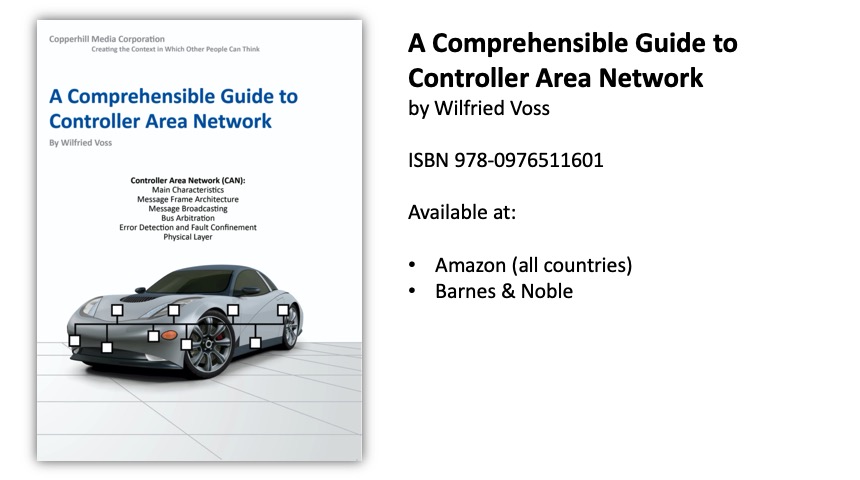Recent Posts
CAN Bus and SAE J1939 Wiring Requirements And Trouble-Shooting
Posted by on
 Controller Area Network (CAN) is a serial network technology that was originally designed for the automotive industry, especially for European cars, but has also become a popular bus in industrial automation as well as other applications.
Controller Area Network (CAN) is a serial network technology that was originally designed for the automotive industry, especially for European cars, but has also become a popular bus in industrial automation as well as other applications.
The CAN bus is primarily used in embedded systems, and as its name implies, is a network technology that provides fast communication among microcontrollers up to real-time requirements, eliminating the need for the much more expensive and complex technology of a Dual-Ported RAM. More Information...
SAE J1939 is a higher-layer protocol based on Controller Area Network (CAN). It provides serial data communications between microprocessor systems (also called Electronic Control Units - ECU) in any kind of heavy-duty vehicles. The messages exchanged between these units can be data such as vehicle road speed, torque control message from the transmission to the engine, oil temperature, and many more. More Information...
In the following I am listing a number of documents referring to wiring CAN Bus (which includes CANopen), DeviceNet and SAE J1939 networks as well as a trouble-shooting guide:
- CANopen Network CAN bus Cabling Guide - Application Note by Copley Controls
- CAN Wiring - Notes on wiring of CAN-Bus Systems and cable selection by esd electronics
- CAN Bus trouble-shooting guide by esd electronics
- SAE J1939 Wiring Requirements
- Practical testing of the CAN physical layer - CiA Newsletter
- DeviceNet trouble-shooting
- ODVA DeviceNet planning and installation manual
 A Comprehensible Guide to Controller Area Network by Wilfried Voss represents the most thoroughly researched and most complete work on CAN available in the marketplace.
A Comprehensible Guide to Controller Area Network by Wilfried Voss represents the most thoroughly researched and most complete work on CAN available in the marketplace.
Controller Area Network (CAN) is a serial network technology that was originally designed for the automotive industry, especially for European cars, but has also become a popular bus in industrial automation as well as other applications.
The CAN bus is primarily used in embedded systems, and as its name implies, is a network technology that provides fast communication among microcontrollers up to real-time requirements, eliminating the need for the much more expensive and complex technology of a Dual-Ported RAM.
This book provides complete information on all CAN features and aspects combined with a high level of readability.
 Loading... Please wait...
Loading... Please wait...
